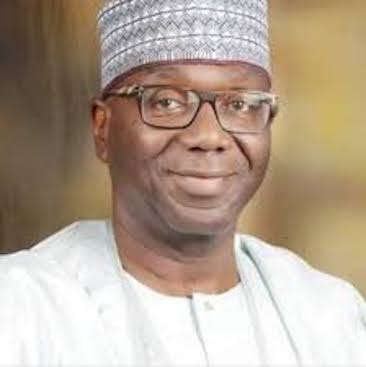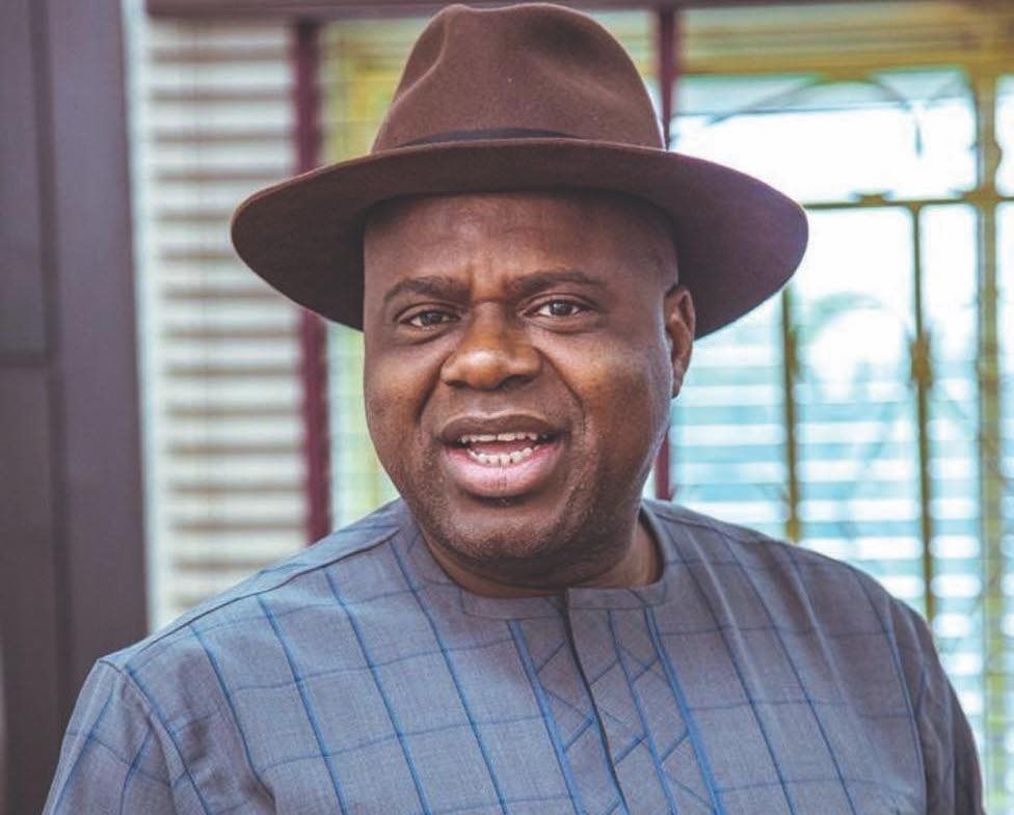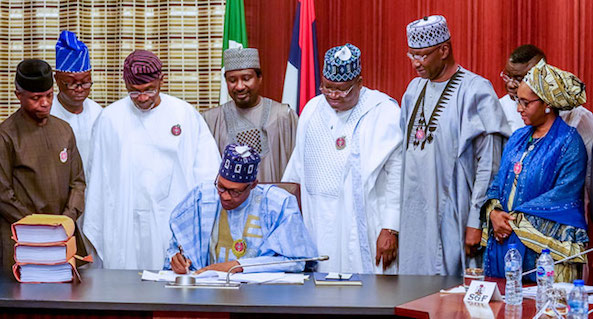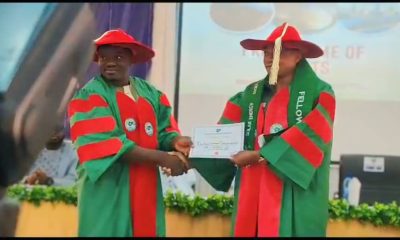COVER
FG Spends N3.19 trn on Personnel Costs in 2020
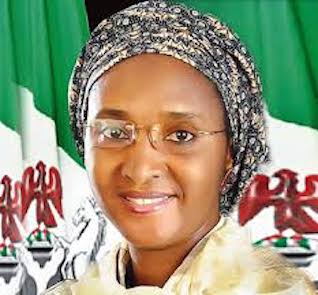
By Tony Obiechina, Abuja
The Federal government will spend a total sum of N3.32 trillion, which amounts to 24.5 per cent of the total expenditure of the 2021 budget on debt servicing.
Minister of Finance, Budget and National Planning, Mrs Zainab Ahmed who disclosed this at the 2021 Budget Breakdown on Tuesday, said the federal government released a total of N1.
80 trillion for the financing of capital expenditure under the 2020 budget, while N3. 27 trillion was spent for debt servicing.According to her, the Federal government spent a total of N3.19 trillion for personnel costs, including payment of pensions in the 2020 Recurrent Budget Expenditures.
According to her, the government will be making a total sum of N709.69 billion from multilateral/bi-lateral loan drawdown to add to the funds to be raised from borrowing, sale of public assets to finance the deficit in the 2021 budget.
During the virtual presentation, Ahmed said the N1.8trn spent on capital projects for the 2020 fiscal period represents about 89 per cent of the provision made for capital projects.
The minister explained that out of the N1.8trn spent on capital projects, the sum of N118.37bn was released for COVID-19 related capital expenditure.
She stated that while the Federal Government had projected the sum of N9.97trn expenditure for 2020, it actually spent about N10.08trn representing 101 per cent performance.
Released N1.80trn for Capital Projects in 2020 – Minister
Also, the Federal Government said it released the sum of N1.80 trillion for capital projects execution in 2020, representing 89 percent of the provisions in the budget.
Minister of finance budget and national planning Mrs Zainab Ahmed who disclosed this on Tuesday said the sum of N118.37 billion was released for Covid-19 capital expenditure.
The Minister gave the figures at the virtual public presentation of the 2021 approved budget in Abuja.
She stated that while the Federal Government had projected the sum of N9.97trn expenditure for 2020, it actually spent about N10.08trn representing 101 per cent performance.
She put the amount spent on debt servicing at N3.27trn while the sum of N3.19trn was released for payment of salaries and pensions.
President Muhammadu Buhari on 31st December,2020 signed 2021 N13.5 trillion budget into law. The signed 2021 budget is 25.7 percent higher to 2020 budget.
Giving insights into aggregate revenue to fund 2021 budget projected at N7.99 trillion (36 percent higher ) than 2020 projection of N5.84 trillion, Mrs Ahmed said 30 percent of the projected revenue would come from oil related sources and 70 percent from non- oil sources.
” Over all, the size of the budget has been constrained by our relatively low revenue”, she said.
For expenditure component of 2021 budget, government projected recurrent ( non- debt) sum of N5.99 trillion, indicating 44.1 percent of total expenditure and 13.39 higher than 2020 revised budget.
2021 budget comes with aggregate capital expenditure of 4.37 trillion representing 32.29 percent of total expenditure and 62.9 percent higher than 2020 .
The debt service provision is N3.32 trillion representing 24.5 percent and 12.6 percent higher than 2020 revised budget.
To retire maturing bonds to local contractors, she said sum of N200 billion had been provided for in the new budget, representing 1.68 per cent of the total budget, adding that , ” over all, N5.60 trillion has been provided for borrowing to finance the budget deficit.
The borrowing , the Minister said would come in a two form- domestic and foreign sources with an equal fixed amount of N2.34 trillion respectively while another borrowing in sum of N709.69 billion is to be procured from multilateral and bi- lateral sources.
Privatisation proceeds target of N205.15 billion would form part of the proceeds to finance 2021 budget, said the minister.
In 2021 budget government’s ministries with large chunk of capital allocations are: Ministry of education N1,146.8 billion, health N600.52 billion, defence and security sector N1,114.16 billion; railway N11.61 billion for rehabilitation and railway tracking.
On measures government is adopting to curtail waivers, she said government was in the process of working out waiver cost as guide to final decision.
” As I reported in my presentation, some of the cost that we expect to incur under the tax waver, custom duties waiver, we said that what we are trying to do is first is to carry out the assessment of what is costing us.
“We are now in the process of reviewing what can be scaled back because the size of the cost of the tax waver is quite significant in terms of revenue for the country”
Responding to inquiry on fate of oil subsidy provision, the Minister said it was a settled topic which had been dealt with. She ruled out possibility of retaining oil subsidy.
“No. We are not bringing back fuel subsidy. We didn’t make provision for fuel subsidy in the budget. The impact of what was done is reducing some of the cost components that are within the fuel subsidy template. No provisions have been made for subsidy of fuel, no provisions have been made for subsidy of electricity”, she stated.
On how much government was targeting in assuming control of unclaimed dividends, an action provided for in finance Act of 2020, which is drawing flasks from certain quarters, she gave conservative estimate of N850 billion.
“There would be as much as N850 billion. We have to get the exact report from CBN and then Company’s Registrar to ascertain that so it could be realised into this special trust fund for unclaimed dividends and dormant account.
Again , this is a special trust fund, it means government is keeping the money in trust for the beneficiaries at any time a registrar or a bank confirms that this is a true and bonafide beneficiary of this fund then government will release from that trust fund to the investors bankers bank entitlement”, she added.
The government, the Minister restated was not keen about locking down the economy. However, she said government would have no choice to toe the path if health challenges pose by breach of Covid-19 protocols remain continue unabated.
” We hope we never have to lockdown the economy like we did before because the impact is very high on the economy, but then if the health challenge becomes so large, and government has no option then that step might be taken. But right now , what we are doing as government, is to re-enforce the measures that needed to be taken by government, by companies; by individuals to mitigate the impact of COVID-19 pandemic to reduce the expansion and also obviates the health challenges .
“Currently the vaccines are now out and they are available and Nigeria is in the process of deciding and beginning to acquire its own vaccine so we do hope that a lockdown the type we’ve seen in 2020 will not happen”, she assured.
The Minister gave insight on finance implication of procuring Covid-19 vaccines by the government.
“First, we are aware that we are expecting donations . As you know, there is a global alliance to support economically weak nations with vaccines. Our understanding of the current plan is that , we will be getting vaccines donations to cover up to 20% of our population. But then, the global standards say that to achieve immunity you have to vaccine at least 70% of the population and so there is a 50% of the population that we may be required to pay for their own vaccination.
“There is inter ministerial committee looking at this matters and the assurance is that government will do what ever is needful to keep the citizens and economy safe even if it means coming back with a supplementary budget as the minister indicated earlier”, Ahmed said.
COVER
Yahaya Bello to Spend Christmas, New Year in Kuje Prison

By Mike Odiakose, Abuja
Immediate past governor of Kogi State, Yahaya Bello will spend the 2024 Christmas and 2025 New Year days in Kuje prison, Abuja, following refusal of his bail application by the Federal Capital Territory High Court.
Justice Maryann Anenih yesterday adjourned the case until Jan.
29, Feb. 25, and Feb. 27, 2025 for the continuation of the hearing.The former governor is standing trial, along with two others, in an N110 billion money laundering charge brought against him by the Economic and Financial Crimes Commission (EFCC).
Justice Anenih had refused to grant a bail application filed by Bello, saying it was filed prematurely.
The judge admitted Umar Oricha and Abdulsalam Hudu, to bail in the sum of N 300 million each with two sureties.
Justice Anenih, while delivering a ruling said, having been filed when Bello was neither in custody nor before the court, the instant application was incompetent.
“Consequently, the instant application having been filed prematurely is hereby refused,” she said.
Recalling the arguments before the court on the bail application, the judge had said, “before the court is a motion on notice, dated and filed on Nov. 22.
“The 1st Defendant seeks an order of this honourable court admitting him to bail pending the hearing and determination of the charge.
“That he became aware of the instant charge through the public summons. That he is a two-term governor of Kogi State. That if released on bail, he would not interfere with the witnesses and not jump bail.”
She said the Defendant’s Counsel, JB Daudu, SAN, had told the court that he had submitted sufficient facts to grant the bail.
He urged the court to exercise its discretion judicially and judiciously to grant the bail.
Opposing the bail application, the Prosecution Counsel, Kemi Pinheiro, SAN, argued that the instant application was grossly incompetent, having been filed before arraignment.
He said it ought to be filed after arraignment but the 1st Defendant’s Counsel disagreed, saying there was no authority
“That says that an application can only be filed when it is ripe for hearing.”
Justice Anenih held that the instant application for bail showed that it was filed several days after the 1st defendant was taken into custody.”
Citing the ACJA, the judge said the provision provided that an application for bail could be made when a defendant had been arrested, detained, arraigned or brought before the court.
Bello had filed an application for his bail on November 22 but was taken into custody on November 26 and arraigned on Nov. 27.
COVER
Middle Belt Group Tasks FG on Resettlement, Safety of IDPs

From Jude Dangwam, Jos
Conference of Autochthonous Ethnic Nationalities Community Development Association (CONAECDA) has called on the federal government to intensify efforts in the resettlement of displaced persons in their ancestral homes.
The organization made this call at the end of its conference held in Jos, the Plateau State Capital weekend.
Thirty resolutions were passed covering security, economy, politics, governance, culture, languages, human rights and indigenous peoples’ rights among others.
The Conference President, Samuel Achie and Secretary Suleman Sukukum in a communique noted that the conference received and discussed reports from communities based on which resolutions were reached on securing, reconstruction, rehabilitation and returning communities displaced by violence across the Middle Belt.
“After considering the reports from communities displaced by violent conflicts, conference resolved, and called on government to focus on providing security to deter further displacements.
“Call on government to provide security to enable communities to return. Government and donor partners should assist in reconstructing and returning displaced communities,” the communique stated.
The GOC 3 Armoured Division Nigeria Army represented by Lt Col Abdullahi Mohammed said the Nigerian Army is committed to working closely with communities to achieve a crime-free society, urging communities to support them with credible information.
“Security is a collective effort, and we cannot do it alone, the community plays a crucial role in ensuring safety.
“We urge everyone here not to shield or protect individuals involved in criminal activities. Transparency and collaboration, together, with maximum cooperation, we can achieve peace, security, and prosperity for our society,” the GOC stated.
The National Coordinator of CONECDA, Dr. Zuwaghu Bonat in his address at the gathering noted that the theme of this year’s program, Returning, Resettling, and Rehabilitating Displaced Communities, was chosen as a wakeup call on the federal government.
He maintained that the organization is aware that President Bola Tinubu has expressed a commitment to ensuring that displaced communities return to their ancestral lands.
He said similarly, some state governments, including Plateau State, have set up committees to address the lingering matter.
The coordinator however cautioned, “It is critical that we avoid generalizations or profiling. For instance, Not all Muslims are involved in terrorism. The overwhelming majority of Muslims in Nigeria are peaceful and reject extremist ideologies.
“We also know that some terrorists exploit religion to mobilize support or rationalize their actions. However, their atrocities – slaughtering women, cutting open pregnant mothers, and killing children show a profound disregard for humanity and God. Normal human beings would not commit such acts.
“We must also be cautious about lumping banditry with terrorism. While statistics indicate that many bandits and kidnappers may share similar ethnic backgrounds, kidnapping has now evolved into a profit-driven enterprise. This distinction is vital to address the root causes effectively,” he stated.
The Governor of Plateau State, Caleb Mutfwang represented by his Senior Special Assistant (SSA) on Middle Belt Nationalities, Hon Daniel Kwada noted that the conference was apt to addressed the various underlying issues bedeviling the region and its people.
“We in the Middle Belt have long been standing at the crossroads of Nigeria’s complex history. Despite our tireless efforts to stabilize this nation, we have faced immense challenges, including underdevelopment, security issues, and marginalization.
“Often, we are unfairly maligned, but gatherings like this offer a chance to change the narrative.
“Such conferences set the tone for better discussions. They allow us to drive processes that bring development, ensure security, and elevate our people to greater heights,” Mutfwang noted.
COVER
Recapitalisation: SEC Charges Banks to Strengthen Corporate Governance

Securities and Exchange Commission (SEC) has called on banks to reinforce their corporate governance principles and risk management frameworks to boost investor confidence during the ongoing recapitalisation exercise.
Dr Emomotimi Agama, Director-General, SEC, said this at the yearly workshop of the Capital Market Correspondents Association of Nigeria (CAMCAN) held in Lagos.
The theme of the workshop is: “Recapitalisation: Bridging the Gap between Investors and Issuers in the Nigerian Capital Market”.
Agama, represented by the Divisional Head of Legal and Enforcement at the SEC, Mr John Achile, stated that the 2024–2026 banking sector recapitalisation framework offers clear guidance for issuers while prioritising the protection of investors’ interests
He restated the commission’s commitment towards ensuring transparency and efficiency in the recapitalisation process.
The director-general stated that the key to bridging the gap between issuers and investors remained the harnessing of innovation for inclusive growth.
In view of this, Agama said, “SEC, through the aid of digital platform, is exploring the integration of blockchain technology for secure and transparent transaction processing to redefine trust in the market.”
He added that the oversubscription of most recapitalisation offers in 2024 reflects strong investor confidence.
To sustain this momentum, the director-general said that SEC had intensified efforts to enhance disclosure standards and corporate governance practices.
According to him, expanding financial literacy campaigns and collaborating with fintech companies to provide low-entry investment options will democratise access to the capital market.
He assured stakeholders of the commission’s steadfastness in achieving its mission of creating an enabling environment for seamless and transparent capital formation.
“Our efforts are anchored on providing issuers with clear guidelines and maintaining open lines of communication with all market stakeholders, reducing bureaucratic bottlenecks through digitalisation.
“We also ensure timely review and approval of applications, and enhancing regulatory oversight to protect investors while promoting market integrity,” he added.
Agama listed constraints to the exercise to include: addressing market volatility, systemic risks, limited retail participation as well as combating skepticism among investors who demand greater transparency and accountability.
He said: “We are equally presented with opportunities which include leveraging technology to deepen financial inclusion and enhance market liquidity.
“It also involves developing innovative financial products, such as green bonds and sukuk, to attract diverse investor segments.
“The success of recapitalisation efforts depends on collaboration among regulators, issuers, and investors.”
Speaking on market infrastructure at the panel session, Achile said SEC provides oversight to every operations in the market, ranging from technology innovations to market.
He stated that the commission is committed to transparency and being mindful of the benefits and risks associated with technology adoption.
Achile noted that SEC does due diligence to all the innovative ideas that comes into the market to ensure adequate compliance with the requirements.
On the rising unclaimed dividend figure, Achile blamed the inability of investors to comply with regulatory requirements and information gap.
He noted that SEC had done everything within its powers to ensure that investors receive their dividend at the appropriate time.
He, however, assured that the commission would continue to strengthen its dual role of market regulation and investor protection to boost confidence in the market.
In her welcome address, the Chairman of CAMCAN, Mrs Chinyere Joel-Nwokeoma, said banks’ recapitalisation is not just a regulatory requirement, but an opportunity to rebuild trust, strengthen the capital market, and drive sustainable growth.
Joel-Nwokeoma stated that the recent recapitalisation in the banking sector had brought to the fore the need for a more robust and inclusive capital market.
She added that as banks seek to strengthen their balance sheets and improve their capital adequacy ratios, it is imperative to create an environment that fosters trust, transparency, and cooperation between investors and issuers.
The chairman called for collaboration to bridge the gap between investors and issuers to create a more inclusive and vibrant Nigerian capital market.She said: “we must work together to strengthen corporate governance and risk management practices in banks, enhance disclosure and transparency requirements for issuers.” NAN

